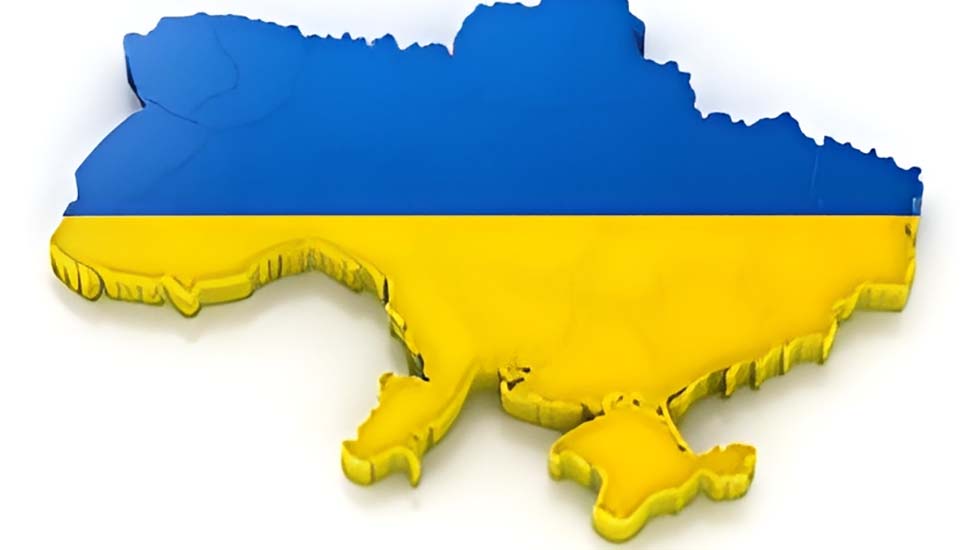The Newsletter n°624 — 5 mai 2014
La Lettre
—
5 May 2014
Why and how Europe will remain at the heart of the world
5 May 2014

Schuman Report on Europe, the State of the Union in 2014
5 May 2014
Presidential election in Ukraine
5 May 2014

Celebrate Europe - European Parliament Open Day
5 May 2014

43% turnout forecast in the European elections in Spain
5 May 2014

Which political programme follows your ideas for Europe?
5 May 2014
Launch of a new party by pro-European Conservatives
5 May 2014
UKIP announced ahead in the UK polls
5 May 2014
Moving towards the end of the Crisis in Spain
5 May 2014

Decline in unemployment in Germany in the first quarter of 2014
5 May 2014
Unemployment in Italy lay at 12.7% of the working population in March
5 May 2014
Portugal: end of the financial assistance programme
5 May 2014
The European Stability Mechanism has its entire capital
5 May 2014
First post-financial assistance programme assessment for Ireland
5 May 2014
Cyprus abolishes restrictions on cashing in bank cheques
5 May 2014
10 years since the biggest ever enlargement
5 May 2014

The European Commission forecasts growth of 2% in 2015
5 May 2014
Informal Meeting of European Healthcare Ministers
5 May 2014

Visit by Catherine Ashton to Belgrade
5 May 2014

European forces operational in Central Africa
5 May 2014
EU announces new support for Ukraine's transition
5 May 2014
The EU/Indonesia Partnership Agreement entered into force on May 1st
5 May 2014
Tax on financial transactions: The European Court rejects the British appeal
5 May 2014

2013 assessment for the European Anti-Fraud Office
5 May 2014

Joachim Gauck criticizes the Turkish government during his visit
5 May 2014

Ukraine the focus of Angela Merkel's visit to Washington
5 May 2014
Franco-German Journalism Prize awarded to Valéry Giscard d'Estaing and Helmut Schmidt
5 May 2014

Adoption of the stability programme 2014-2017
5 May 2014
New national TV channel in Greece
5 May 2014

Resignation by Prime Minister Alenka Bratusek
5 May 2014

Ten day visit by the Japanese Prime Minister to Europe
5 May 2014

Moscow sanctioned by Washington and Brussels
5 May 2014

The IMF approves an arrangement bringing aid to Ukraine up to 17.01 billion dollars
5 May 2014

The OSCE and the special observation mission in Ukraine
5 May 2014
Ukraine plunges into violence
5 May 2014
Lifting of quotas on European citizens travelling to Switzerland
5 May 2014

European prisons are still overpopulated
5 May 2014

EU, US and China represent half of the world's GDP
5 May 2014

Annual euro area inflation rate up to 0.7%
5 May 2014
Euro Area Unemployment at 11.8% in the euro zone and 10.5% in the EU
5 May 2014
70% of young people see EU membership as an asset in a globalised world
5 May 2014

Dictionary of the EU's official languages
5 May 2014

Europe in the Storm - Lessons and Challenges
5 May 2014
"Shared histories for a Europe without Dividing Lines"
5 May 2014
Seven of the best 10 restaurants in the world are European
5 May 2014

Launch of a new Universal Museum: the Louvre of Abu Dhabi
5 May 2014
European heritage: the seven most threatened sites
5 May 2014
Agenda
5th May
Euro Zone Finance Ministers Meeting (Brussels)
5th & 6th May
Agriculture and Fisheries Council (Athens)
6th May
Economic and Financial Affairs Council (Brussels)
7th May
EU-Japanese Summit (Brussels)
8th May
Foreign Affairs, Trade Council (Brussels)
8th May
Council of the Governors of the European Central Bank (Brussels)
9th May
Europe Day ()
11th May
Presidential Election in Lithuania (1st round) ()
12th May
Foreign Affairs Council (Brussels)
Thirty years after the Dayton-Paris Agreement: the European Union must get involved in Bosnia and Herzegovina
Civil society stands up to its leaders
When sleepwalkers awake: German plea for a new European security architecture
Europe and Putin: Should realism prevail over reality?
Technological and security issues: 2025, a pivotal year for women
The Editors of the Newsletter :
Inga Groth, Pauline Massis Desmarest, Charles de Marcilly ,Claire Darmé, Raphaël Frison, Jelena Isailovic, Marine Le Lann, Salomé Larcher
N°ISSN : 2729-6482
Editor-in-Chief :
Pauline Massis Desmarest / Charles de Marcilly
Director of Publication :
Pascale Joannin
Any questions or suggestions?
Contact Us!







